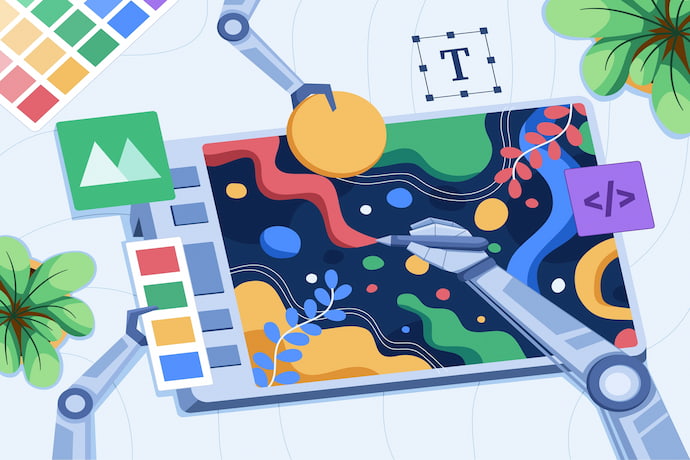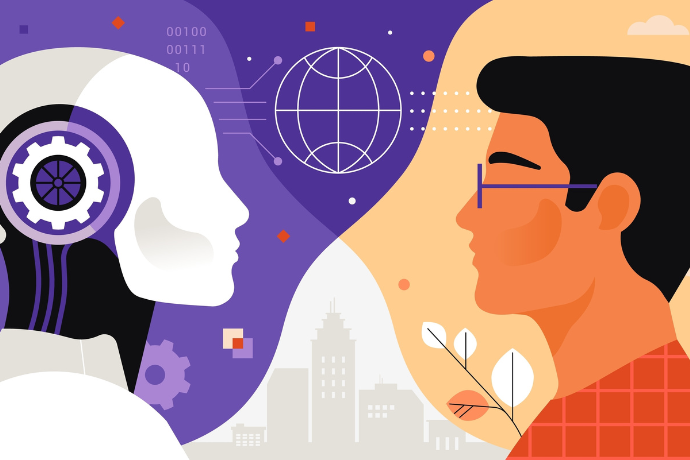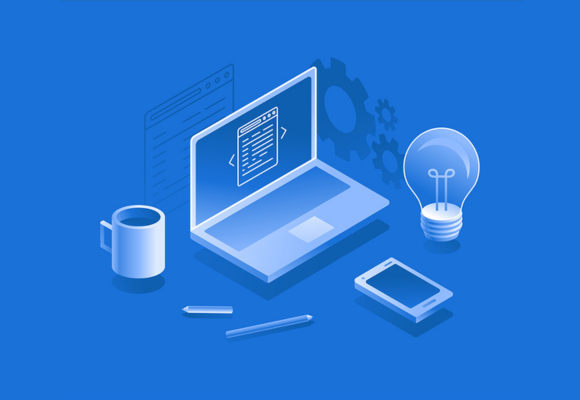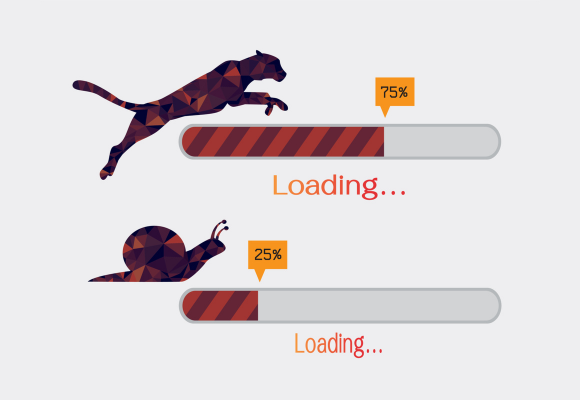September 25, 2023
“Artificial Intelligence (AI)”– the term alone triggers a mountain of questions and uncertainties. How is it reshaping the way websites are developed? What does it mean for digital marketing strategies? As we navigate all of the new changes with AI technology, these questions naturally come up. In this article, we’ll unpack the relationship between AI, website development, and digital marketing. Together, we'll uncover the secrets, address any uncertainties, and explore how AI is changing the game in these areas.
Understanding AI in the Context of Web Development
At its core, AI refers to computer systems that can perform tasks that typically require human intelligence. In the world of web development, AI algorithms can analyze large datasets, recognize patterns, and make informed decisions. This helps developers create websites and applications that can respond to user behavior in real time.
AI-Driven Personalization

One of the most powerful impacts of AI on web development is the ability to provide personalized user experiences. Traditional websites offered a one-size-fits-all approach. AI has changed the game!
By analyzing user data like browsing history and user preferences, AI algorithms can tailor content and recommendations to individual users. This level of personalization enhances user engagement, and can also improve conversion rates.
Chatbots and Virtual Assistance
Chatbots are another remarkable innovation of AI that can benefit web developers. These virtual assistants provide real-time interaction with users, answering questions and guiding them through websites.
Chatbots use natural language processing to understand users’ input and provide relevant responses. This technology improves user experience by offering instant support. AI Chatbots also free up human resources for more complex tasks.
AI and User Experience
User experience (UX) plays a pivotal role in the success of any website or application. AI has brought advancements that significantly enhance UX, as discussed! AI algorithms can analyze user interactions to identify pain points and areas for improvement. This data-driven approach allows developers to make design changes and optimizations, leading to a smoother and more intuitive user experience.
Challenges and Ethical Considerations

While the integration of AI into web development has tons of potential, it also comes with challenges and ethical considerations. Privacy concerns arise when collecting and analyzing user data for personalization purposes. Striking the right balance between personalization and user privacy is crucial.
Plus, the integration of AI in web development and digital marketing raises concerns about job displacement. Automation could potentially replace certain tasks traditionally performed by humans. Striking a balance between AI-driven efficiency and preserving employment opportunities will be a critical challenge.
The use of AI in decision-making processes, such as algorithmic hiring, can lead to biases if not carefully monitored and managed. Ensuring transparency and accountability in AI algorithms becomes essential to maintain fairness. As AI becomes more ingrained in our online experience, there's a need to establish ethical frameworks and rules that guide its responsible use. While AI is an incredible technology worth harnessing to optimize your website, you’ll want to be thoughtful in how it’s employed.
Future Trends and Possibilities
Looking ahead, one trend on the horizon is voice search and voice command technologies. Voice assistants are becoming more and more popular. This means that websites and applications will need to be optimized for voice-based interactions. This includes adapting content and interfaces to align with natural language patterns.
Another intriguing development is the growth of AI-generated content. While AI tools can already assist in content creation, in the future AI-generated content will most likely blend in with human-created material. This could streamline content production and distribution processes.
AI's role in cybersecurity is also expected to expand. AI-powered systems can detect and respond to cyber threats very quickly, strengthening the security of websites and user data. As cyberattacks become more sophisticated, AI-powered defenses will be crucial in protecting digital platforms.
Staying informed and adaptable will be key for developers to harness the power of AI. It brings a whole new level of efficiency and effectiveness to website development and digital marketing, streamlining processes, optimizing user experiences, and enhancing campaign targeting. If you’re a digital marketer, you’ll want to pay attention to the progress of this tech over the next year!


